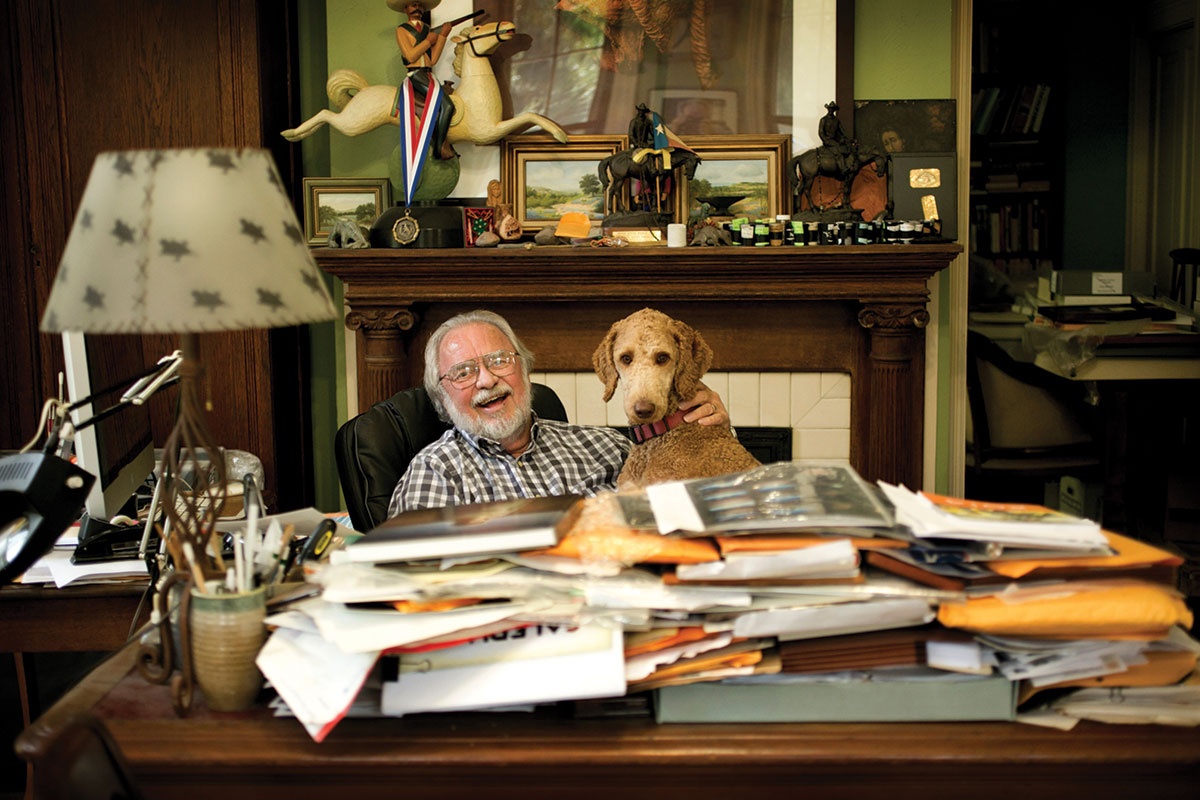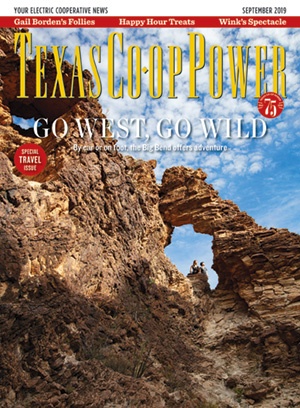Bill Wittliff was one of the most talented and creative people I have ever known. When I first met Bill and his wife, Sally, in Austin in 1964, Bill had just quit his job at Southern Methodist University Press, and he and Sally had started Encino Press, a publishing company of their own. Bill had considerable talent as a book designer, and in the 18 years of its existence, Encino Press published 100 or so of the most beautiful books ever produced in Texas.
Wittliff started writing screenplays in the 1970s. The first full-length film he co-wrote was The Black Stallion in 1979, followed by a string of hits he either wrote or co-wrote, including Lonesome Dove, Honeysuckle Rose, Raggedy Man (based on his mother’s reminiscences of working as a telephone operator in Edna) and The Perfect Storm.
He became a mentor to dozens of young screenwriters in Texas and always had time to visit with them when they dropped by his office in the two-story house at Sixth and Baylor streets in Austin, an office that Texas Monthly writer Skip Hollandsworth described as “a combination museum and rent-by-the-month storage unit.” The last time I visited Wittliff there, much of the space was taken up by a life-size wooden horse, complete with charro saddle, that had been used for a prop by a street photographer in Mexico.
Wittliff died June 9 in Austin. He was 79.
The preservation of stories was the overriding theme of Wittliff’s life. In 1985, he received a phone call from J. Frank Dobie’s former secretary. Dobie’s estate was being sold, and she wanted to know if Wittliff wanted to buy Dobie’s desk. He did, and when he drove to the Dobie house to get it, he noticed about 30 cardboard boxes full of papers. He bought those, too. They turned out to be Dobie’s papers that had not gone to the University of Texas after his death. They included extensive correspondence and a diary Dobie had kept when he was a graduate student at Columbia University. Dobie himself thought the diary had been destroyed.
The Wittliffs donated these papers to Texas State University in San Marcos, and they became the foundation of the Southwestern Writers Collection, which, combined with the Southwestern & Mexican Photography Collection, the Lonesome Dove Collection and the Texas Music Collection, comprise the expanded Wittliff Collections. The collections now occupy the entire seventh floor of Texas State’s Albert B. Alkek Library.
Wittliff was a compulsive archivist himself. When he was 15, he and two high school buddies drove to San Antonio for an Elvis Presley concert. The hall was sold out, and they decided to sneak in. Wittliff climbed a tree behind the building and jumped to a window ledge that opened into Elvis’ dressing room. He explained to a surprised Elvis that he and two friends had driven from Blanco to hear him but could not get into the hall. Elvis tore a paper towel from the wall dispenser and wrote on it, “To the doorkeeper. Let these 3 fellows in. I know them. Thanks. Elvis Presley.” That paper towel is now in the Wittliff Collections.
My fondest memory of Wittliff is of sitting in the lobby of the Gage Hotel in Marathon with him one afternoon before a Lonesome Dove event that philanthropist J.P. Bryan was producing. Wittliff was telling stories about the difficulties of filmmaking. I told him that I had seen The Black Stallion and that I loved the shipwreck scene, where the boy and the horse swim to safety through the surf.
Wittliff explained that they used six different horses to shoot that scene. The black stallion they started with proved to be totally unmanageable, so the film company provided six other older horses, but they were all different colors, so they dyed them all black. When the horses got in the water, Wittliff explained, the dye started coming off. They were on the sixth horse when the director decided he had the shot he wanted.
I mentioned that I remembered a lot of underwater shots from that scene, and Wittliff said, “That’s because the director and the cameraman hated each other. The director was always yelling at the cameraman. The cameraman was a scuba diver, and he figured that if he was underwater, he couldn’t hear the director. So he tried to stay underwater as much as possible.”
I know that Wittliff wrote those stories down and that they are in the Wittliff Collections. There was nothing ephemeral about Bill Wittliff.
Editor’s note: For years, Lonn Taylor emailed his weekly Rambling Boy column on Wednesdays. As soon as I received his June 19 Ramble, with his tribute to Bill Wittliff, I asked if we could publish an excerpt in TCP. Lonn responded quickly and enthusiastically the next day with an edited version. How could I have imagined that would be my last email from Lonn? Less than a week later, on June 26, Lonn followed Bill into the great beyond. I’m sure the stories will be outstanding. I only wish he would be sending them to us so we could share them with you.


